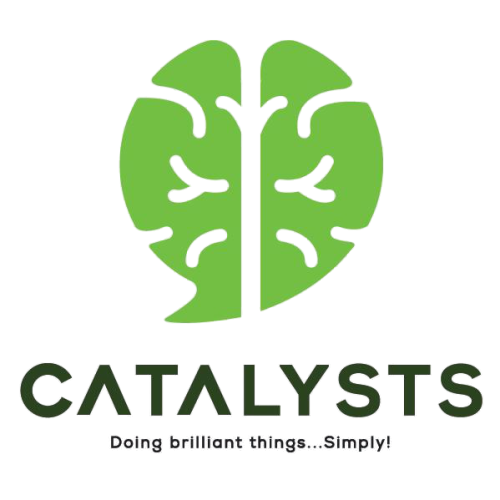 Like most of life’s phenomena, stress too follows this simple rule – “Too much of anything is good for nothing”. Let’s first begin by understanding what is stress. In layman terms, stress is a person’s capacity to fulfill his/her needs and demands efficiently. Efficiently being the key-word. Now psychologists identify two types of stress, good stress, i.e. ‘eustress’, and bad stress, i.e. ‘distress’. A moderate amount of good stress is necessary for our every day functioning. For example, this is the level of stress that helps you wake up on time every day. Acute eustress is the rapid stress we feel for a short period. For example, after a good workout session, after a rollercoaster ride, when we’re dancing or performing. It is accompanied by feel good hormones like oxytocin, and sometimes adrenaline. The benefit of the stress response to the development of the brain has been documented well in research. Stress promotes new learning and makes us ready for adaptation. A moderate degree of stress is necessary to keep us on our A game otherwise we may get complacent and may lose focus of our goals. It can help improve neuronal connections enhancing memory and attention span, enabling you to be more efficient and productive. It can help us to identify new ways of problem solving which in the long run helps us become better thinkers. The brain is made up of neurons and support cells, known as ‘gray-matter’ responsible for higher-order thinking such as decision-making and problem-solving. Stress actually helps strengthen the neuronal pathways and boost brain performance. This explains why you can find yourself super productive when nearing a project deadline or under pressure.
Like most of life’s phenomena, stress too follows this simple rule – “Too much of anything is good for nothing”. Let’s first begin by understanding what is stress. In layman terms, stress is a person’s capacity to fulfill his/her needs and demands efficiently. Efficiently being the key-word. Now psychologists identify two types of stress, good stress, i.e. ‘eustress’, and bad stress, i.e. ‘distress’. A moderate amount of good stress is necessary for our every day functioning. For example, this is the level of stress that helps you wake up on time every day. Acute eustress is the rapid stress we feel for a short period. For example, after a good workout session, after a rollercoaster ride, when we’re dancing or performing. It is accompanied by feel good hormones like oxytocin, and sometimes adrenaline. The benefit of the stress response to the development of the brain has been documented well in research. Stress promotes new learning and makes us ready for adaptation. A moderate degree of stress is necessary to keep us on our A game otherwise we may get complacent and may lose focus of our goals. It can help improve neuronal connections enhancing memory and attention span, enabling you to be more efficient and productive. It can help us to identify new ways of problem solving which in the long run helps us become better thinkers. The brain is made up of neurons and support cells, known as ‘gray-matter’ responsible for higher-order thinking such as decision-making and problem-solving. Stress actually helps strengthen the neuronal pathways and boost brain performance. This explains why you can find yourself super productive when nearing a project deadline or under pressure.
However, when the level of stress exceeds the healthy amount and interferes with our optimal functioning, it causes harm. This is known as distress. For example, acute stress is helpful before competitive exams as it helps you prepare, focus and adjust your speed of writing. But a level of stress so high that it causes you to blank out during the examination or interview, or perhaps rather be unable to prepare at all, is unhealthy. This is when stress is bad for us. Chronic stress is another form of bad stress. It occurs when we repeatedly face stressors that take a heavy toll and feel inescapable. A stressful job or an unhappy home life can bring chronic stress. This is what we normally think of as serious stress. Because our bodies aren’t designed for chronic stress, we can face negative health effects (both physical and emotional) if we experience chronic stress for an extended period of time.
Understanding this, now let us think of ways in which we can manage our stress and lead a healthier life. For example, you body experiences distress mainly when it perceives something as a ‘threat’. When we change our perception from ‘threat’ to ‘challenge’, we are more likely to have a productive response. Also, it is important to be self-aware and identify the patterns in our life that lead to acute or chronic distress, and gradually build on depleting them. Some sources of good stress are- engaging in hobbies, spending quality time with loved ones, going on a date often, adding a new fun task to your list sometimes, engaging in indoor and outdoor sports/activities, etc. You can introspect and identify your personal sources of good stress, and thereon work to incorporate more of it in your daily life.
Life as we know it, is a balance of good and bad stress.
Eustress is desirable, distress is inevitable.
The idea is the right kind of stress in the right amount for the right duration is the perfect recipe for your brain to function optimally. As humans, we have the ability to experience-observe-improvise. Not all stress is bad stress, let’s use this to our advantage!
“Author : Alancia Menezes
Insights : Ms. Saraswathi Char & Dr. Wilona Annunciation.”


